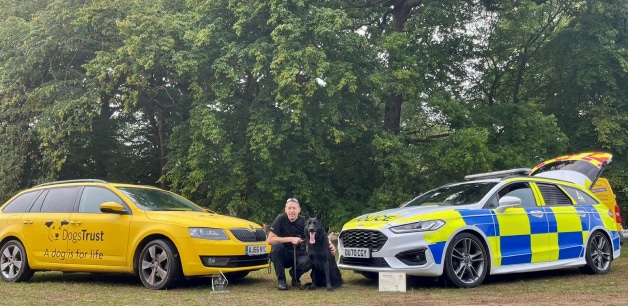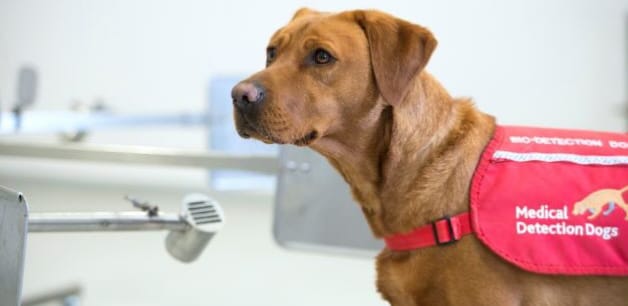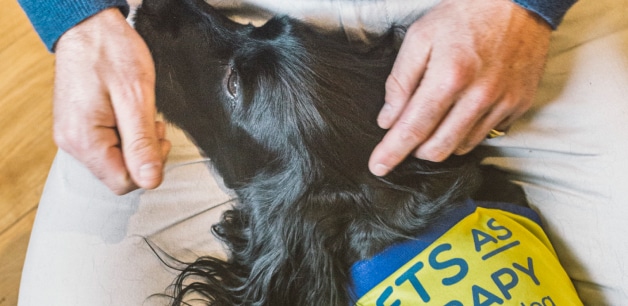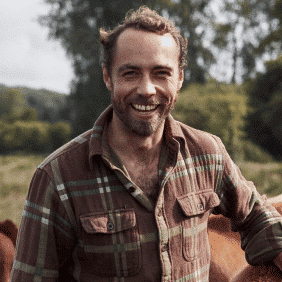What defines a working service dog?
Working, service and assistance dogs all fall under the same umbrella of dogs who are specifically trained to provide a service and help humans. The people these amazing dogs help can range from military and police, to those with disabilities and mental health problems.
The jobs that service dogs do are incredible, and I’m always in awe of the training methods used by handlers all over the world. If we didn’t have assistance dogs in today’s society, many of our services would function very differently!
What are the different types of service dogs?
The training that a certified working dog must go through begins during puppyhood. Their training depends on the type of assistance the dog provides when they’re older. Below I have collated a list of the different types of assistance and service dogs. Can you imagine your dog in any of these roles?
Military and police dogs
Dogs play a huge role in several of our public services. Some of the duties these dogs assist with include drug detection at border control, or explosive detection in the military. They also perform general protection work, such as locating and apprehending suspects to help officers make arrests.
Common breeds in this service can include German shepherds, Dobermans and bloodhounds. Smaller dogs, such as beagles, are also known for their assistance in the police and military, as expert sniffer dogs!

Search, rescue and cadaver dogs
Search and rescue dogs are specially trained to use their noses to find people who are lost or in danger. Breeds often include those which are highly trainable and able to navigate rough terrain and weather, such as Border collies and Labrador retrievers. Search and rescue dogs also help to track and locate Alzheimer patients who have wandered away from their homes.
There’s another type of search canine, called cadaver dogs. These brave dogs are trained to locate people who have passed away. You might recall their incredible work in recovering victims of 9/11, or the Thailand tsunami of 2004. The most well-trained cadaver breeds often include German shepherds and Labradors. However, several breeds can be successful cadaver dogs, as long as they’re confident and strong willed.

Medical assistance dogs
Medical assistance dogs can help millions of blind, deaf, diabetic and people with epilepsy all over the world, to live an independent and fulfilling life. Some examples of their skills include detecting seizures before they occur, and blood sugar levels in people with diabetes.
Medical assistance dogs go through years of specialist training so that they can develop the correct skills to keep their companion safe. In addition, medical assistance dogs are also known for being great companions for people with physical disabilities. Their job involves helping them with day-to-day tasks that might otherwise be difficult for them to manage alone.

Wildlife protection dogs
Wildlife protection dogs are a crucial part of conservation, and yet the work they do isn’t widely spoken about. This is something I want to change!
Poaching, or illegal hunting, harms wildlife in many countries around the world. Dedicated rangers work tirelessly to protect endangered species such as rhinos, elephants, big cats and even whales. However, they often wouldn’t be able to carry out the work they do, without assistance from specialist canine units.
Just one example of wildlife protection dogs includes canine teams in African countries, like the Save the Rhino K9 units in Zambia, Kenya and South Africa. These clever dogs are specially trained to track the scents of poachers and illegal wildlife products, which are often found in poachers’ homes and vehicles. If it weren’t for the dogs, many poachers would slip through the net and escape detection, risking further poaching.
Other wildlife protection dogs assist marine conservationists with tracking and protecting orca whale populations. They’re incredibly well-trained to detect and follow the scent of the orca’s droppings in the ocean – even from several hundred miles away!
Working dogs in Australia help wildlife rescue teams to search for injured animals after extreme weather, such as bush fires. They can be trained to track and locate koalas and other species, to be rescued and nurtured back to health.

Therapy dogs
Dogs with a calm and gentle nature can be registered and trained as therapy dogs. These amazing dogs help improve lives by providing comfort in lots of different ways.
For instance, adults and children with an autistic spectrum disorder often benefit from interactions with animals. Some even have their own therapy dogs, to help them feel calm and safe.
Therapy dogs also play an important part in the lives of people with mental health issues. As you probably already know, my dog Ella saved me from my battle with clinical depression. It’s largely because of her that I’m here today, and that’s why I decided to register her as a therapy assistance dog with Pets as Therapy.
Therapy dogs like Ella have helped to save countless lives. I’m passionate about spreading awareness of the work these dogs do every day, so that more people like myself can benefit from their love and comfort.
Every service dog has their day
Thanks for taking the time to read this blog. If you’ve gotten this far, you’re probably already a huge dog lover like me! You might also be a supporter of all the brilliant service and assistance dogs that we have today – I know I am.
It’s important to me to spread as much awareness as possible about the crucial work that service dogs and their handlers do. And I feel it pays to remember that they don’t just provide a service without complaint; but they can save thousands of lives, and generally make the world a better place.
As always, if you have any thoughts or questions regarding this blog, I would be delighted for you to share them. You can reach me via social media or email at james@ella.co.
James & Ella x
